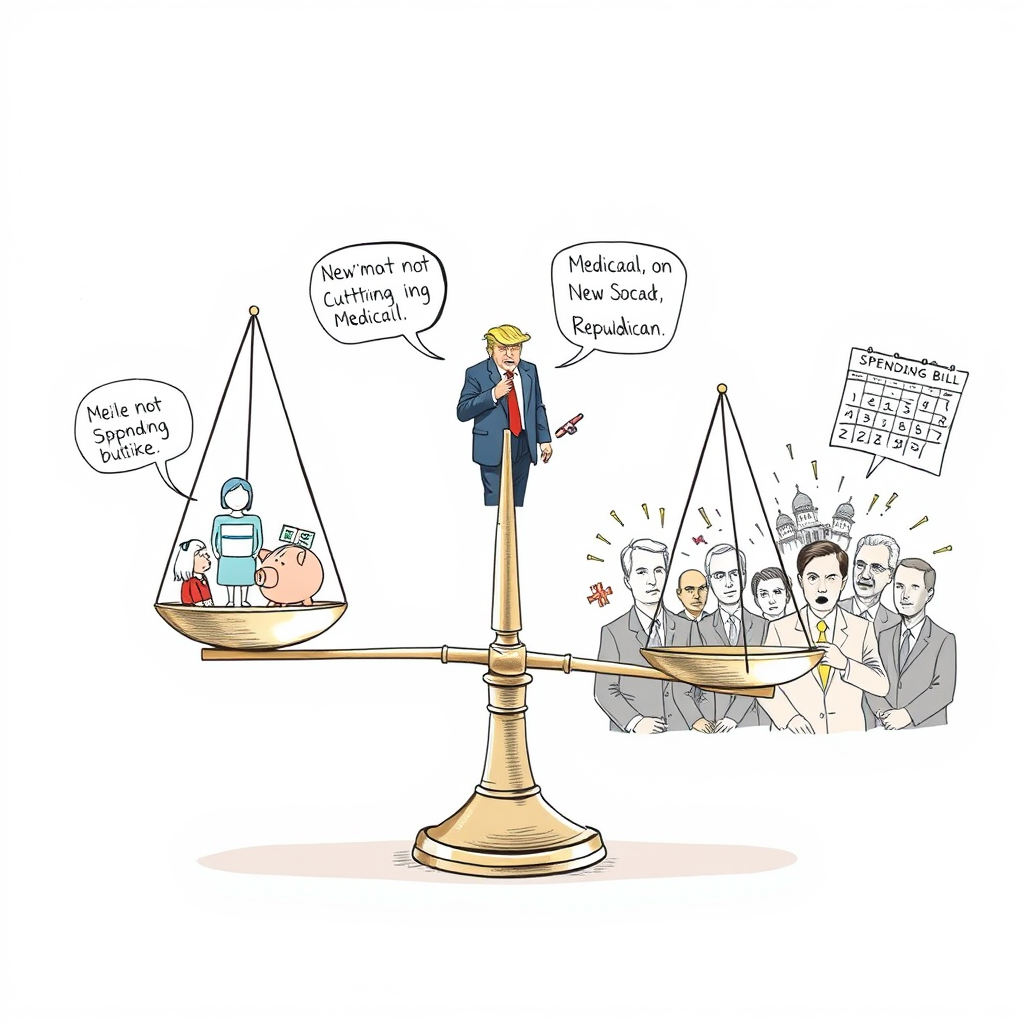Trump's Flip-Flops Threaten GOP's Spending Plan

House Republicans are grappling with the challenge of funding Donald Trump’s ambitious spending bill, a task made more complicated by the president’s penchant for shifting stances on key issues, particularly entitlements. According to The New York Times, lawmakers are uncertain whether Trump will stick to his recent declarations that he opposes cuts to Medicaid, Medicare, and Social Security.
In interviews, Trump has consistently asserted, “We’re not cutting Medicaid, we’re not cutting Medicare, and we’re not cutting Social Security.” He even told NBC News that he would veto any bill that included cuts to Medicaid, asserting that efforts to reduce fraud, waste, and abuse were not the same as cutting the program.
Entitlement reform is often considered a political third rail due to its sensitivity, but Republicans are acutely aware that Trump could change his mind at any moment, potentially leaving them in a politically precarious position. The Times reports that GOP leaders are cautious about the potential backlash from slashing programs that millions of Americans rely on for healthcare.
Adding to the complexity, Trump has hinted at a potential tax increase on the wealthiest Americans to fund the bill. In a social media post, he suggested that even a small tax hike could provide Democrats with ammunition in the upcoming midterm elections. House Speaker Mike Johnson, who has pledged to pass the spending bill by the July 4 deadline, described the situation as a delicate balancing act.
Johnson reassured reporters that the intention is to ensure that all Medicaid beneficiaries, including young mothers, the elderly, and the disabled, maintain their coverage. However, the uncertainty surrounding Trump’s positions makes it difficult for Republicans to plan effectively.
The political landscape is further complicated by Trump’s history of abrupt policy reversals, leaving Republican lawmakers unsure of where he stands on critical issues. This unpredictability adds an extra layer of challenge to an already complex legislative process.
In my opinion, the constant flip-flopping by Trump on major issues like entitlements and taxes creates an unstable environment for policymaking. It undermines the trust and confidence that lawmakers need to effectively govern. Moreover, it puts vulnerable populations at risk, as decisions about their healthcare and financial security are subject to sudden changes based on the president’s whims. This kind of political volatility is detrimental to the country’s well-being and highlights the need for more consistent and reliable leadership.